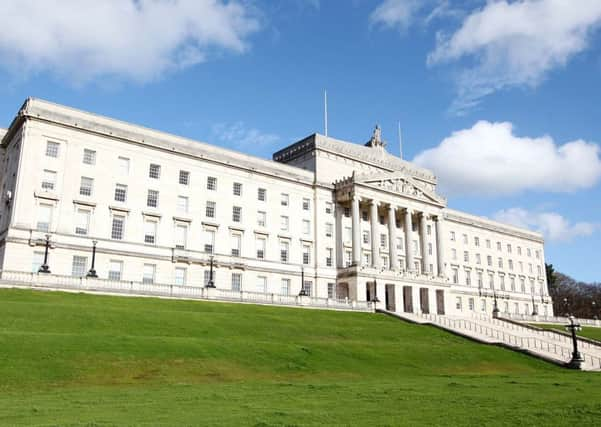Consumer confidence hits lowest level since late 2013


Figures for the last quarter, Q4, of 2017 show concerns about higher inflation contributed to a general feeling of unease said the bank’s Northern Ireland Consumer Confidence Index.
The index registered a reading of 123 in the fourth quarter of 2017. This was significantly below the 135 registered in the third quarter of 2017 and the 132 reading in the fourth quarter of 2016.
Advertisement
Hide AdAdvertisement
Hide Ad“At the end of last year, consumer confidence in Northern Ireland fell to its lowest level since the fourth quarter of 2013,” said Danske chief economist Conor Lambe.
“Confidence fell very sharply in 2017 Q4, with falls observed over the quarter and over the year across all four of the sub-indices that make up the overall consumer confidence index.
“More than a third of survey respondents said that political uncertainty and the lack of a Northern Ireland Executive had the largest negative impact on their confidence levels.
“It is clear that people want to see the return of the devolved institutions and so we must hope that the political parties can reach a deal sooner rather than later.”
Advertisement
Hide AdAdvertisement
Hide AdThe rate of price rises also had a detrimental effect on confidence levels, he added, as 16% of consumers stated that the impact of high inflation on their household finances had the largest negative impact on sentiment.
“Despite the interest rate rise last November, 19% of people still highlighted low interest rates as the factor having the largest positive impact on their confidence levels in 2017 Q4. But this was down slightly from the third quarter of 2017.”
A sub-index based on how consumers feel about their current financial position compared with a year earlier revealed a fall both over the quarter and over the year.
Similarly a measure of expectations over the year ahead was significantly down.
Advertisement
Hide AdAdvertisement
Hide Ad“Inflation in the UK was around 3% at the end of last year, whereas at the end of 2016 it was 1.6 per cent,” said Mr Lambe.
“With consumers facing significantly higher prices at the checkouts, it is not hard to explain why there was such a large fall in sentiment around current household finances.
“The inflation rate is expected to decrease gradually in 2018, but we are forecasting that it will remain above the Bank of England’s target and average 2.6 per cent over the year as a whole.
“Falling inflation should see the squeeze on consumers ease a little as we go through the year, but we still expect household spending power to remain under pressure.
Advertisement
Hide AdAdvertisement
Hide Ad“The fall in this part of the index suggests that consumers have similar expectations.”
In terms of job security, the analysis also showed a decline, though the majority of respondents expected their job security to remain unchanged over the next twelve months.
However, some differences occur across regions.
The percentage of people expecting no change in their job security was 64% in Belfast city and 65% in the North, while that figure was higher in the West and the South, at 79 per cent and 76 per cent respectively.
Looking at spending patterns, the index figures around the amount consumers expect to spend on high value items such as furniture and holidays over 2018 dropped to 130 in Q4 2017, down from 139 in Q3 and 134 the previous year.
Advertisement
Hide AdAdvertisement
Hide Ad17 per cent of respondents expect to spend more on expensive items over the next twelve months, but 25 per cent of people think they will spend less.
Similarly, few expect to be in a position to build savings, with just 8% hoping to do so while 30% expect to save less.
“When considered alongside the other parts of our analysis, especially the falls observed in the sub-indices related to households’ future financial positions and expected spending on big-ticket items, it appears that consumers don’t believe they will have sufficient disposable income over the next twelve months to substantially increase the amount they hold in savings,” said Mr Lambe.